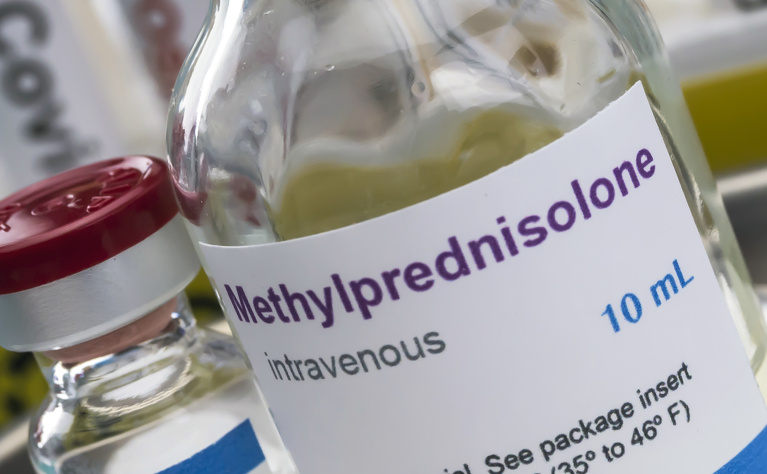The steroid methylprednisolone is prescribed to some people with IBD. Learn more about it...

Methylprednisolone is a type of corticosteroid used in the treatment of inflammatory bowel disease (IBD), such as Crohn’s disease and ulcerative colitis.
Corticosteroids are man-made versions of the hormone cortisol which is created by the human body in the adrenal glands (two small glands at the top of the kidneys). Taking corticosteroids causes the body to slow down production of, or stop making, cortisol. The body then receives the cortisol it needs from the corticosteroids.
You can read more about corticosteroids here.
Methylprednisolone works as both an anti-inflammatory and an immunosuppressive medication, reducing both the inflammation in your body and suppressing your immune system.
In inflammatory bowel disease inflammation is caused by your immune system attacking parts of your digestive system, so by reducing both of these your symptoms should improve.
Steroid medications are often the first medicine prescribed to patients with Crohn’s disease and ulcerative colitis. They are fast-acting and help to quickly bring symptoms under control.
Methylprednisolone is an induction treatment, meaning it is used to induce remission of your IBD (get you well). They are typically given to patients shortly after diagnosis or when symptoms return which can’t be managed by another medication.
They are not a long-term treatment, you may only take them for three to six weeks, while also taking another medication which you will stay on longer-term. This other medication could be an immunomodulator such as azathioprine or a biologic such as adalimumab or infliximab. These are known as maintenance treatments which aim to keep you well (in remission).
You shouldn't stop taking methylprednisolone suddenly or you could become very unwell.
Methylprednisolone is also known by the brand name Medrone.
In Crohn’s disease and ulcerative colitis methylprednisolone is taken in two ways.
Methylprednisolone tablets are taken orally (by mouth) daily for a short period of time (usually up to six weeks) before slowly reducing the dose (tapering).
Intravenous infusions (drip) may be given in severe cases of Crohn’s disease or ulcerative colitis to quickly get symptoms under control. These infusions are usually given in hospital over a few days to people who are seriously ill from their IBD to try to quickly improve their symptoms and reduce inflammation.

Steroids like methylprednisolone are fast-acting, meaning some patients see a reduction in their symptoms within days of taking them. Most patients will start to feel better within a week or two. However, it’s important to remember that methylprednisolone will not work for everyone and if you don’t start to feel better after a couple of weeks you should let your IBD team know so they can consider another treatment for you.
Even if you do start to feel better you should continue to take your course of methylprednisolone as prescribed by your doctor and not stop taking it suddenly. This can make you very unwell as your body won’t be producing enough cortisol by itself.
As with any medication you may be at risk of side effects when taking it.
Common side effects of corticosteroids in general include1:
References